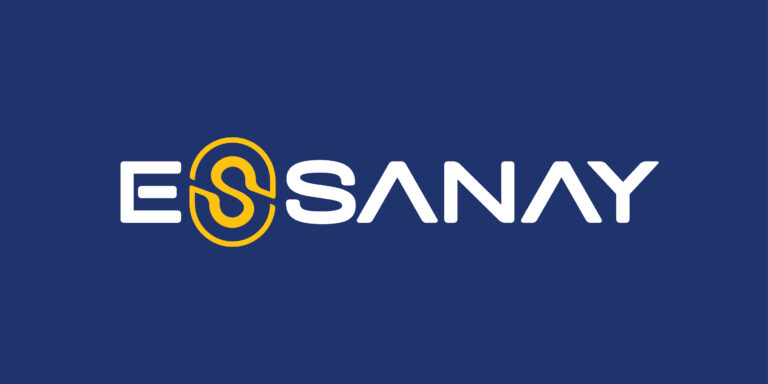Lobuloplasty by ENT Specialist in Kannamangala, Kadugodi, Bengaluru?
Lobuloplasty is a surgical procedure designed to repair and restore the shape of the earlobe, addressing issues such as torn, stretched, or split lobes. This procedure is particularly beneficial for individuals who have experienced earlobe damage due to heavy earrings, trauma, or intentional ear stretching. In a city like Bengaluru, where fashion trends and lifestyle habits can impact ear health, lobuloplasty offers a solution for both aesthetic enhancement and functional improvement.
Why Lobuloplasty Is Essential
Bengaluru faces unique challenges that contribute to the growing need for lobuloplasty:
- Lifestyle Factors: The city’s vibrant fashion scene often leads to the use of heavy jewelry, which can cause earlobe damage.
- Cultural Factors: The desire for aesthetic treatments is increasing among Bengaluru residents, aligning with the benefits of lobuloplasty.
Given these factors, lobuloplasty is essential for helping individuals in Bengaluru address both cosmetic and functional concerns related to earlobe damage.

Benefits of Lobuloplasty
Lobuloplasty offers several benefits:
- Aesthetic Enhancement: Restores the natural appearance of the earlobe, fixing tears, splits, or stretched lobes for a more symmetrical and visually appealing look.
- Improved Functionality: Allows patients to wear earrings again after proper healing and re-piercing, if desired.
- Quick and Safe Procedure: Minimally invasive, performed under local anesthesia, and involves minimal downtime.
- Long-Lasting Results: Provides a permanent solution to damaged or misshapen earlobes when combined with proper post-operative care.
- Customizable Approach: Tailored to each patient’s specific needs, whether repairing a split, reshaping a lobe, or closing a piercing hole.
What Issues Can Lobuloplasty Fix?
Lobuloplasty can address several earlobe concerns:
- Torn Earlobes: Caused by trauma, accidents, or heavy earrings pulling on the earlobe.
- Stretched Earlobes: Resulting from wearing heavy jewelry or intentional ear stretching (gauging).
- Split Earlobes: Commonly due to long-term use of earrings in delicate skin, leading to complete separation of the earlobe.
- Misshapen Earlobes: Congenital deformities or changes in earlobe shape due to aging or previous surgeries.
- Closure of Piercing Holes: Repairing and closing old or unwanted piercing holes to restore a natural earlobe appearance.
Lobuloplasty Procedure
This surgery is typically performed to address issues such as stretched, torn, or damaged earlobes, often resulting from prolonged use of heavy earrings or other forms of trauma. Below is a detailed overview of the lobuloplasty procedure, structured into pre-surgical preparation, anesthesia, incision and repair, and post-surgical care.
Pre-Surgical Preparation
Before undergoing lobuloplasty, it is essential to schedule a consultation with a qualified surgeon. During this initial meeting, the surgeon will:
- Assess the Earlobe Condition: Evaluate the extent of damage or stretching to determine the best approach for repair.
- Discuss Desired Outcomes: Understand the patient’s expectations and goals for the procedure.
- Plan the Procedure: Based on the assessment and discussion, the surgeon will outline the steps required to achieve the desired results.
Anesthesia
To ensure a painless experience, local anesthesia is administered directly into the earlobe. This numbing process typically takes a few minutes to become effective, allowing the patient to remain awake and comfortable throughout the procedure. In some cases, light sedation may also be recommended to enhance relaxation.
Incision and Repair
The repair process involves several precise steps:
- Marking: The surgeon carefully marks the area of the earlobe that needs repair. This marking helps guide the surgical process, ensuring symmetrical and accurate tissue alignment.
- Excision: Any damaged or excess tissue is meticulously removed. This step is crucial in restoring the earlobe’s natural shape and appearance.
- Reconstruction: The edges of the earlobe are carefully sutured together. This involves precise suturing techniques to ensure a natural, rounded appearance.
- Suturing: Fine sutures, often non-dissolvable, are used to close the wound. These sutures are chosen to minimize scarring and promote optimal healing.
Post-Surgical Care
After the procedure, the treated area is cleaned and covered with a sterile dressing to prevent infection. Patients are provided with detailed instructions on post-operative care, which may include:
- Follow-Up Appointments: Sutures are typically removed after 1–2 weeks, and follow-up visits are scheduled to monitor healing progress.
- Wound Care: Patients are advised on how to keep the wound clean and dry to facilitate smooth recovery.
- Activity Restrictions: Temporary restrictions on strenuous activities may be recommended to avoid complications.
By following these steps and adhering to post-operative care instructions, patients can achieve a successful recovery with minimal discomfort and optimal aesthetic results.
Procedure Duration
The entire procedure usually takes about 30 minutes per earlobe, depending on the extent of repair.
Post-Operative Instructions for Lobuloplasty
- Keep the Area Clean: Clean the surgical site gently with the antiseptic solution prescribed by your doctor, usually 2–3 times a day. Apply the prescribed antibiotic ointment after cleaning to prevent infection.
- Avoid Water Exposure: Refrain from showering or letting water touch the treated area for the first 24–48 hours. Use a clean cloth to clean the face, avoiding the earlobe.
- Pain Management: You may experience mild discomfort or swelling; take the prescribed painkillers or over-the-counter medication as directed. Apply a cold compress near the surgical site (not directly on it) to reduce swelling.
- Avoid Strain or Trauma: Do not sleep on the affected ear for at least one week. Avoid wearing headphones, tight hats, or anything that puts pressure on the earlobe.
- Follow-Up Care: Attend all scheduled follow-up visits to monitor healing progress. Avoid re-piercing the earlobe for at least 6–8 weeks, as advised by your doctor.
- Watch for Signs of Infection: Notify your doctor immediately if you notice any of the following:
- Excessive swelling, redness, or warmth at the site.
- Pus or unusual discharge.
- Persistent pain or fever.
Equipments and Facilities
Our clinic is equipped with advanced technology for effective lobuloplasty:
Surgical Instruments:
Our clinic uses high-quality instruments like scalpels, needle holders, tissue forceps, and surgical scissors to ensure precise and efficient lobuloplasty procedures.
Anesthesia Equipment
Local anesthetic syringes and needles are used to administer painless injections, ensuring patient comfort throughout the procedure.
Sterile Materials
Surgical drapes, gloves, sterile gauze, and cotton are utilized to maintain a clean environment and prevent infection.
Suturing Materials
We offer both absorbable and non-absorbable sutures to cater to different healing needs and minimize scarring.
Antiseptics and Disinfectants
Effective antiseptics and disinfectants are applied before and after surgery to ensure a sterile environment.
Post-Operative Supplies
Adhesive bandages and antibiotic ointments are provided to aid in healing and prevent infection post-surgery
Meet Our Doctor
Dr. Swathy R
MBBS, MS (ENT)
Meet Dr. Swathi R. Your Esteemed Otorhinolaryngologist:
With over 5 years of invaluable clinical experience, Dr. Swathi R. emerges as a stalwart in the field of Otorhinolaryngology. Graduating from Basaveshwara Medical College for her undergraduate studies, she pursued further specialization, obtaining her MS in Otorhinolaryngology, Head and Neck, from Navodaya Medical College.
Dr. Swathi R. brings a wealth of expertise to her practice, excelling in the management of ENT emergencies and outpatient care with precision and compassion. Her proficiency extends to a range of surgical procedures, including Tympanoplasty, Mastoidectomy, and beyond, where she showcases her adept surgical skills and commitment to patient welfare. Trust in Dr. Swathi R.’s comprehensive care approach to address your ENT concerns with proficiency and dedication, ensuring optimal outcomes and patient satisfaction.

Consult Now
So, lobuloplasty is a valuable procedure for individuals in Bengaluru seeking to repair and restore the appearance of their earlobes. By addressing both cosmetic and functional concerns, lobuloplasty offers a safe and effective solution for enhancing earlobe aesthetics while promoting overall satisfaction with one’s appearance.
.
FAQ
Generally, Lobuloplasty is a well-tolerated procedure and discomfort is minimal. Local anesthesia is typically used to numb the area, ensuring that patients feel little to no pain during the surgery. After the procedure, mild discomfort or soreness may be experienced, which can be managed with over-the-counter pain medication.
Recovery time varies from person to person, but in general, most individuals can resume their normal activities within a few days to a week after the procedure. The initial healing period typically lasts around one to two weeks, during which time patients are advised to avoid strenuous activities and refrain from wearing earrings. Full recovery, including the fading of any visible scarring, may take several weeks to months.
The extent of scarring depends on various factors, including the technique used during the procedure and individual healing characteristics. However, skilled surgeons strive to minimize scarring by employing meticulous surgical techniques and placing incisions in inconspicuous locations. Over time, any residual scarring tends to fade and become less noticeable, especially with proper wound care and scar management techniques.
Yes, Lobuloplasty can be performed on both ears simultaneously in most cases. This approach can offer several benefits, including reduced overall recovery time and symmetry in the final results. However, it's essential to discuss your specific circumstances and preferences with your surgeon during the consultation to determine the most suitable treatment plan for you. They will assess factors such as the extent of correction needed and your overall health to ensure a safe and effective procedure.

